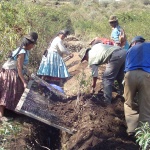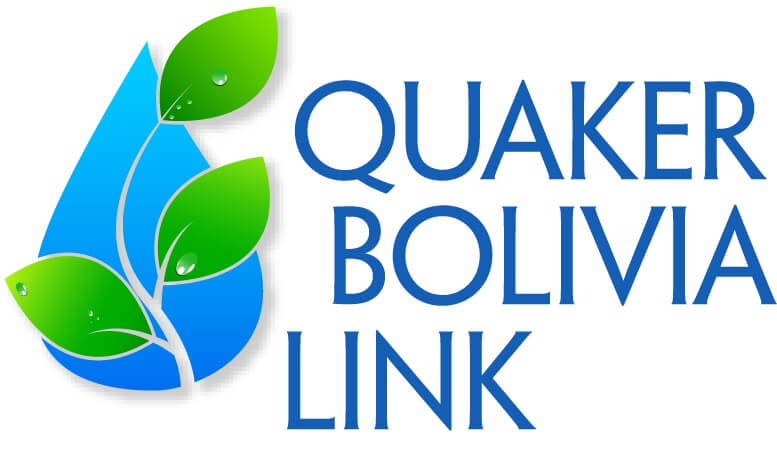This morning I had a short meeting with our QBLUS project committee, which makes recommendations to the US board about how we can best use your donations to support those who need it the most in Bolivia.

Water committees in Bolivia are responsible for organizing work days when QBL provides funding for the water system and for maintaining the system after QBL leaves.
We have been reviewing some new project proposals. We hope to share the details of these projects later. Just a quick preview, though—we have a new water project that a Quaker Meeting in Oklahoma has generously decided to fund. We approved 19 greenhouses in the village of Anco Aque. For 2015, the Bolivian office wants to fund six water projects, a quinoa project, and a llama project. There is a lot happening.
This morning, we were finalizing the details about how to reinforce some projects that we funded in the past few years. Most of the projects are doing well. There are some projects that need a little help. These projects require small repairs, with costs ranging from $60 to $250. It may not seem overwhelming, but when families can usually only contribute $0.30 to $0.45 a month, those expenses can became a significant obstacle.
More importantly, though, we will strengthen the water committees that are responsible for maintaining the village water systems. Each time we fund a water project, we ask the villages to elect three people to form a water committee. The water committee is responsible for maintaining the water system and taking care of the village sustainability account.
The water committees and sustainability funds are key factors for the long-term viability of each water project we fund.
Over the years communities change. In some communities, water committee members have moved away. Others may have been obliged to leave their responsibilities due to family difficulties, or may have felt like the job was too much responsibility for too little thanks—I’m sure anyone who has served on a committee knows the feeling.
While most villages are able to recover, others need a little extra help.
So, QBL will accompany these villages in the process of strengthening their committees. We will discuss their obstacles and provide the necessary support for a sustainable project. We will revise the project guidelines that outline the responsibilities of everyone that benefits from the water system to align them more closely with the realities of village life.
Finally, we will partner with local municipal health workers to review hygiene training for families and children.
As I said, these aren’t very expensive items. A new hygiene kit for the children will cost about $5 per child. The supplies to disinfect the water tank will cost about $32. The average cost to fix the water systems is about $171.
Just a little can make a tremendous impact in the lives of these families. Can you donate to QBL so that we can continue to do this important work?
